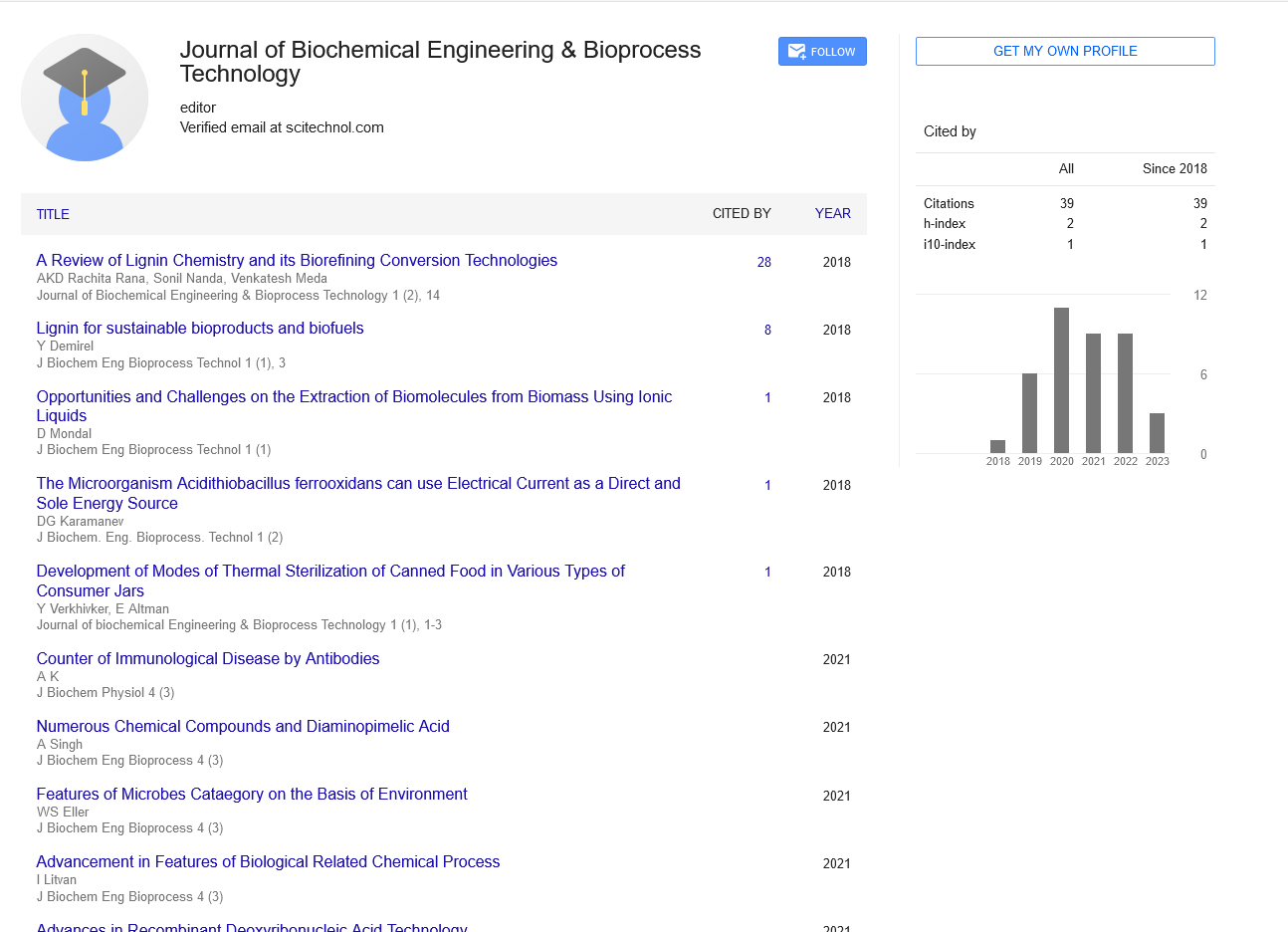Sustainable energy generation through wastewater: A situation in the urban city of Lagos, Nigeria
Timothy O Ajayi
Ogun State Institute of Technology, Nigeria
: J Biochem Eng Bioprocess Technol
Abstract
As Nigeria’s economic capital and commercial nerve centre, the city of Lagos is undergoing speedy urbanization. With an estimated population of over seventeen million people, Lagos is one of the world’s fastest growing cities. One of the prominent natural endowments that has borne the brunt of this rapid expansion is the Lagos Lagoon, a water body that has been used for sewage disposal for more than half a century. The large volume of sewage deposited in the lagoon on a daily basis has escalated due to the rapid growth in the city’s population. The thrust of this paper is to explicate the repercussions of wanton sewage disposal into the Lagos Lagoon and to highlight the potential, which Lagos has to generate massive energy from sewage waste in order to meet its energy challenges. From ten separate stations massive energy from sewage waste in order to meet its energy challenges. From ten separate stations across the Lagos Lagoon, water samples were collected and analyzed to ascertain the existence of pathogenic entities using the techniques of sedimentation, microscopy and culture. These pH levels and Biochemical Oxygen Demand (BOD) of the samples were tested using the pH meter and BOD test apparatus correspondingly. This paper shows that sewage disposal into the Lagos Lagoon has made the water body ecologically unhealthy for aquatic plants and animals. It has also decreased the visual appearance of the environment. Further, this cruel practice has exposed some persons that come in contact to the lagoon’s waters to pathogenic infections. Extant studies have pointed to the fact that sewage waste is a key energy source, with 1 kilogramme of dry faecal sludge having a calorific value of 17.3 millijoule. This paper strongly recommends the dynamic use of faecal sludge to save the Lagos Lagoon from sewage pollution and upscale energy supply in Lagos.
Biography
E-mail: olutimijasco@gmail.com
 Spanish
Spanish  Chinese
Chinese  Russian
Russian  German
German  French
French  Japanese
Japanese  Portuguese
Portuguese  Hindi
Hindi 